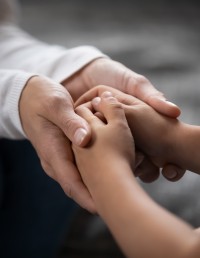Lawsuit Charges Group Home Operator with Harming Young Women
by Poonam Juneja
The National Center for Youth Law (NCYL) has filed a lawsuit alleging that practices at California group homes run by Promesa Behavioral Health deny foster youth the reproductive and sexual health care services and information to which they are legally entitled. Promesa runs eight group homes for foster children, including for pregnant and parenting teens, in Fresno, California and a nearby community.
Numerous young people, along with a former staff member, charge that staff at Promesa refuse to permit youth to obtain health services from their provider of choice, including from Planned Parenthood; force them to waive their right to confidential medical care; and require them to sign abstinence agreements. They further allege that Promesa staff search the belongings of foster youth for contraceptives, such as condoms; confiscate any contraceptives found; and punish any youth who had them, for example, by taking away the youth’s so-called “privileges,” such as visiting family members.
It is imperative that young women in California’s foster care system have access to reproductive and sexual health services. These young women experience significantly higher rates of unwanted teen pregnancy and childbirth than their counterparts who are not in care. More than one quarter of female sixteen and seventeen-year-olds in California’s foster care system have been pregnant at least one time, compared to about ten percent of female youth nationally.[1] Young people in the foster care system have trouble getting and using contraception, including condoms. Although 70% of foster and former foster youth interviewed about their most recent pregnancy did not categorize their pregnancy as wanted, only about one quarter were using some form of birth control at the time that they conceived.[2] Foster youth also struggle with access to proper prenatal care during pregnancy. Twenty percent of the seventeen-year-olds in California’s foster care system who have been pregnant, reported that they received no prenatal care at all during their pregnancy.[3]
Not only are these practices contrary to good public health policy, they violate the law. The California constitutional right to privacy protects the fundamental right of California adolescents to retain personal control over the integrity of their bodies and to decide whether and when to parent. California’s medical confidentiality statutes additionally provide adolescents the right to control and limit the release of information regarding the reproductive and sexual health services they receive.
These violations have also caused great harm to the young women placed in Promesa’s group homes by California’s foster care system.
One of NCYL’s clients was not permitted to go to Planned Parenthood, even though she was experiencing vaginal bleeding for an extended period of time. She was eventually taken to a different medical provider which found that she was suffering a miscarriage. Promesa staff punished this young woman for violating their rules against sexual activity and being pregnant, and denied her visits with her young child.
Promesa staff threatened another of NCYL’s clients with punishment if she received a birth control shot, telling her that she was not allowed to receive the shot because she was not allowed to be sexually active while living in their group homes. They similarly punished another young woman, who is also working with NCYL, when, during a medical appointment, she truthfully disclosed to her doctor that she had been sexually active in order to receive appropriate medical care.
Through the lawsuit, NCYL is taking action to stop these practices. NCYL believes that it is critical that foster youth have easy access to reproductive and sexual healthcare services and information, including access to contraception and prenatal care. Youth should be able to exercise their constitutional right to privacy to control their own bodies and protect themselves, without facing punishment or any other barriers.
[1] Mark E. Courtney, Pajarita Charles, Nathanael J. Okpych, Laura Napolitano & Katherine Halsted, Findings from the California Youth Transitions to Adulthood Study (CalYOUTH): Conditions of Foster Youth at Age 17, Chapin Hall Ctr. for Child. at the U. Chi., 43-44 (2014).
[2] Mark E. Courtney, Amy Dworsky, Gretchen Ruth Cusick, Judy Havlicek, Alfred Perez & Tom Keller, Midwest Evaluation of the Adult Functioning of Former Foster Youth: Outcomes at Age 21, Chapin Hall Ctr. for Child. at the U. Chi., 51 (2007).
[3] Courtney, Charles, Okpych, Napolitano & Halsted, supra, 44.





